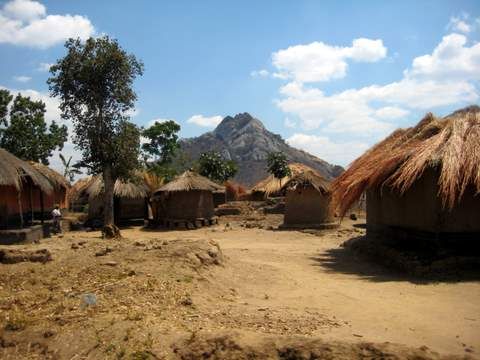
There are many different theories why Africa is poor. Clearly there is no single answer, but one important factor is the monetary inflation. Many countries on the continent have a relatively high inflation.
Inflation
Inflation is a tax, mostly unknowingly paid by people to their governments. Economists argue that some inflation is healthy for the economy and others blame price increases or unscrupulous traders for inflation. Well, maybe, but a very simple explanation for inflation is the result of supply and demand of money and produce. A country's money supply is normally controlled by the government's reserve bank. The available goods and services are mostly a controlled by a country's population. When a country's money supply increases more than the available goods, then prices increase.
Traders will sell at the highest price they can. Competitors in the market create a downward pressure on the price resulting in a market where supply meets demand. When prices increase it is a direct result of reduced goods or an increased monetary supply. Most countries in the world experience some sort of growth and hence goods available tend to increase. If prices still rise, then the monetary supply increases faster than the supply of goods. In conclusion, prices increase as a result of inflation of the monetary supply not the other way.
Inflation discourages a culture of savings. Why save up money when it will buy me less in a couple of months than today? In order to be able to pay for something now, people become reliant on loans. Due to the high interest payments, loans are expensive. These interest rates are normally substantially higher than inflation - there is a default risk to be covered, banks' operating expenses need to be paid and the lender wants a profit. All this needs to happen while keeping up with inflation. The complicated, increasingly more regulated banking sector and lacking infrastructure on the continent makes banking expensive, inefficient and therefore ineffective.
Savings
A good form of saving, offers a store of value for a long time. This is really the ability to store work, currently not required, to be used in the future. If a subsistence farmer is able to support his family and still be left with some additional produce, he may chose to grow his family or save this produce for the future, to be used in a bad year, when disaster strikes or when he is unable to work any longer. Agricultural produce has only a limited storage ability and is not an ideal form of saving. A Non-inflating form of money on the other hand is a good store of value. An inflationary money will diminish the farmers work. He will need to put in additional work to keep up with inflation. A deflationary money will gain in value without every doing anything - good for the farmer, good for the saver, but bad for somebody taking out a loan.
Many poor countries have strong regulations for accessing foreign exchange (normally a better money) and pretty much ban precious metals. The person on the streets is denied access to the most simplest form of saving, a sound form of money.
Despite all the difficulty in saving, there are a number of examples of how savings can be made despite the inhospitable environment often found. The purchase of a goat represents a form of saving. The goat requires minimal maintenance and can mostly fend for itself. When the money is required, the goat can be sold. It can also serve as a source of meat some time in the future.
So called village banks are a popular way for saving money. A group of people (often women) who have a regular income will contribute part of their income once a month to one member of the groups. This person receives a substantially larger amount of money than her normal income, and she can now afford to purchase an item not normally accessible to her. The beneficiary changes every month and allows each member when it is their turn to make a large purchase without having to save money in the traditional sense.
The lack of saving opportunities does also encourage entrepreneurs to set up shop, to try to keep their money working in order to keep up with inflation. This is the argument for inflation by some economists.
Many people simply don't have access to a modern banking. Saving is not only discouraged through inflation, but also through regulatory hurdles. Reserve banks increasingly seek to regulate smaller banks, Savings and Credit Cooperative Organizations (SACCOs) and informal (village) savings groups. This increases costs to run these institutions and diminishes the effects for its customers or members. All this is done in an attempt to protect the consumers and to prevent money laundering. Is the trouble worth the costs?
Conclusion
Without the ability to save, there is no incentive to plan for the future. The here an now - the daily survival - is more important. Inflation discourages savings and keeps a large number of people in poverty.
If countries can reduce their deficit spending through sound financial policies, there will be no need to increase the money supply so much (causing high inflation) and a culture of savings can develop, which could help to reduce poverty in many parts of Africa.
TL; DR
People in Africa are poor due to the high levels of inflation often experienced. High Inflation discourages savings. Without savings, people turn to expensive loans and are not encouraged to think of the future. They stay poor and the status quo remains.